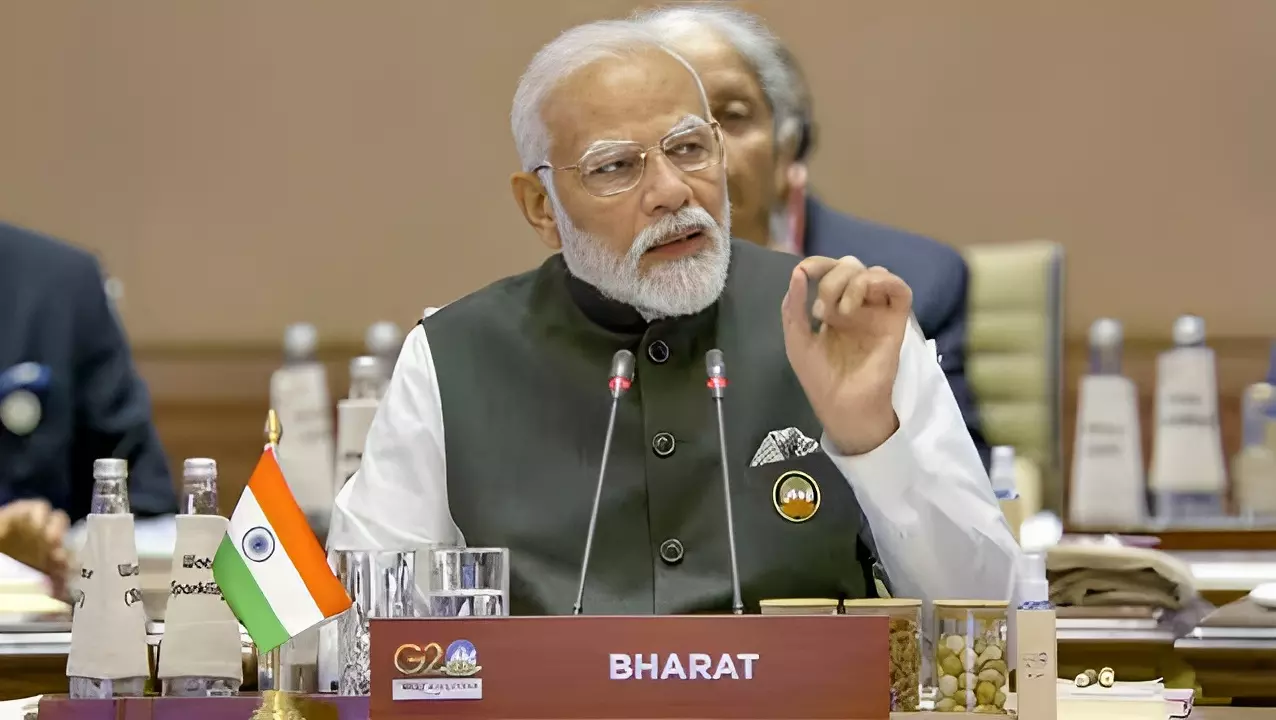
Modi’s name plate bears ‘Bharat’ instead of ‘India’ at G20 Summit
This comes close on the heels of a row over the switch from 'India' to 'Bharat' in the dinner invitations sent by President Droupadi Murmu to G20 leaders

When Prime Minister Narendra Modi began speaking at the beginning of the G20 Summit at Bharat Mandapam in New Delhi on Saturday (September 9), what caught many eyeballs was the board in front of him declaring the country. It read 'Bharat' instead of 'India'.
This comes close on the heels of a controversy regarding the switch from 'India' to 'Bharat' in the dinner invitations sent by President Droupadi Murmu to foreign leaders attending the G20 Summit this weekend.
The United Nations on Friday (September 8) made a statement that they would update India's name to 'Bharat' in UN records once New Delhi completes all the necessary formalities.
The upcoming special session of Parliament has generated discussions and speculations regarding a potential name change, although the session's agenda has not been officially disclosed.
The India vs. Bharat debate
Some members of the ruling BJP have suggested that 'Bharat' should take precedence over 'India,' while Opposition leaders have called it a distraction, pointing out that 'Bharat' is already mentioned in the Constitution.
Prime Minister Narendra Modi urged his ministerial colleagues on Wednesday to avoid getting entangled in the political controversy surrounding the 'Bharat' issue. He insisted that 'Bharat' represents the nation's ancient name.
In the English version of the Constitution, the preamble opens with the phrase "We, the people of India..." and in Part One of the document, it explicitly states, "India, that is Bharat, shall be a Union of States."
In the Hindi version of the Constitution, 'Bharat' is consistently used instead of 'India,' except in the section that defines the country's names. In Hindi, it reads, "Bharat, that is India, shall be a Union of States."
Changing the name from India to only Bharat would necessitate a constitutional amendment, requiring approval by a two-thirds majority in both houses of parliament.

